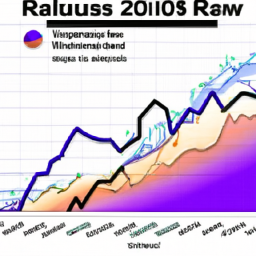South Africa's economy has been heavily reliant on its currency, the rand, for many years. Recently, the rand has been particularly volatile, with the currency's exchange rate fluctuating amid a number of factors. These include the US dollar's rebound, the Johannesburg Stock Exchange hitting an all-time high and a monthly purchasing managers' survey. All of these have had a direct impact on the South African economy.
In January 2021, the rand retreated as US data offered hope that inflation was now in check. This was followed by the currency edging higher after Gwede Mantashe, energy minister, announced that South Africa had secured 1.5 million tonnes of coal for the country's electricity generation for the year.
The rand has also weakened alongside other emerging market currencies as the dollar rebounded this week. On Thursday (5 January), the rand was trading at around R14.50 to the US dollar. This is a significant weakening compared to the R14.30 level seen earlier in the week.
The weakening of the rand has had a direct impact on South Africa's electricity generation. South Africa generates 80 percent of its electricity by burning coal. This means that a weaker rand affects the cost of importing coal, and subsequently the cost of electricity. The rest of South Africa's electricity comes from renewable energy sources and nuclear energy, which are both more expensive than coal. This means that a weaker rand basically amounts to helping South Africa borrow money, as the cost of electricity rises.
The weakening of the rand has also had an impact on the Johannesburg Stock Exchange, which hit an all-time high in January. South African technology and mining stocks led the rally, which was attributed to the weaker rand making South African assets more attractive to foreign investors.
The rand held on to gains against the dollar in December after President Cyril Ramaphosa was re-elected, as well as on Thursday (22 December) despite the dollar's recovery on the back of strong US data. However, on Friday (30 December), the rand weakened as well as stocks as investors opted for caution in the final days of 2020.
Overall, South Africa's rand has had a significant impact on the country's economy in recent months. A weaker rand has made South African assets more attractive to foreign investors, while also affecting the cost of electricity. It will be interesting to see how the rand performs in 2021, and how it continues to shape the South African economy.
